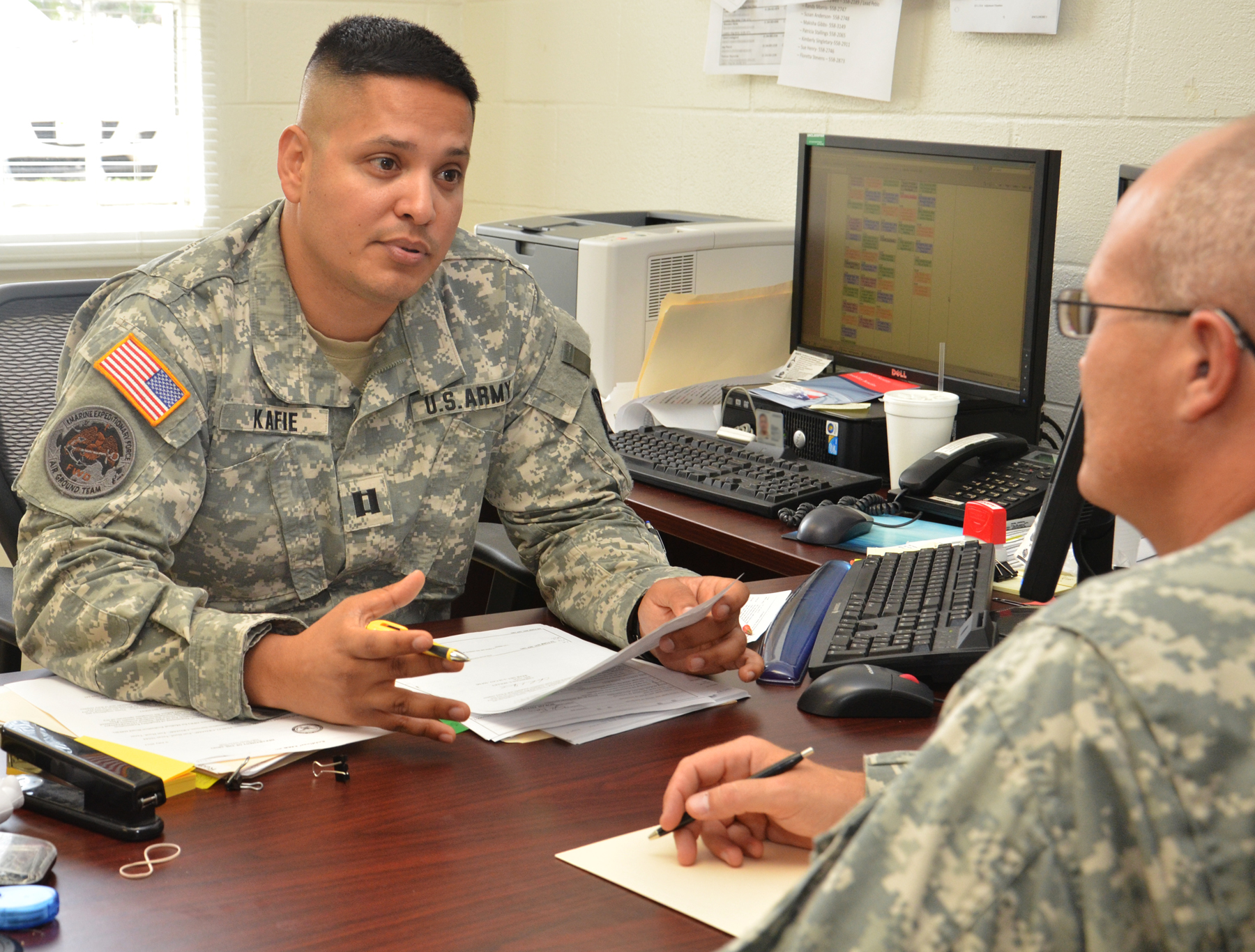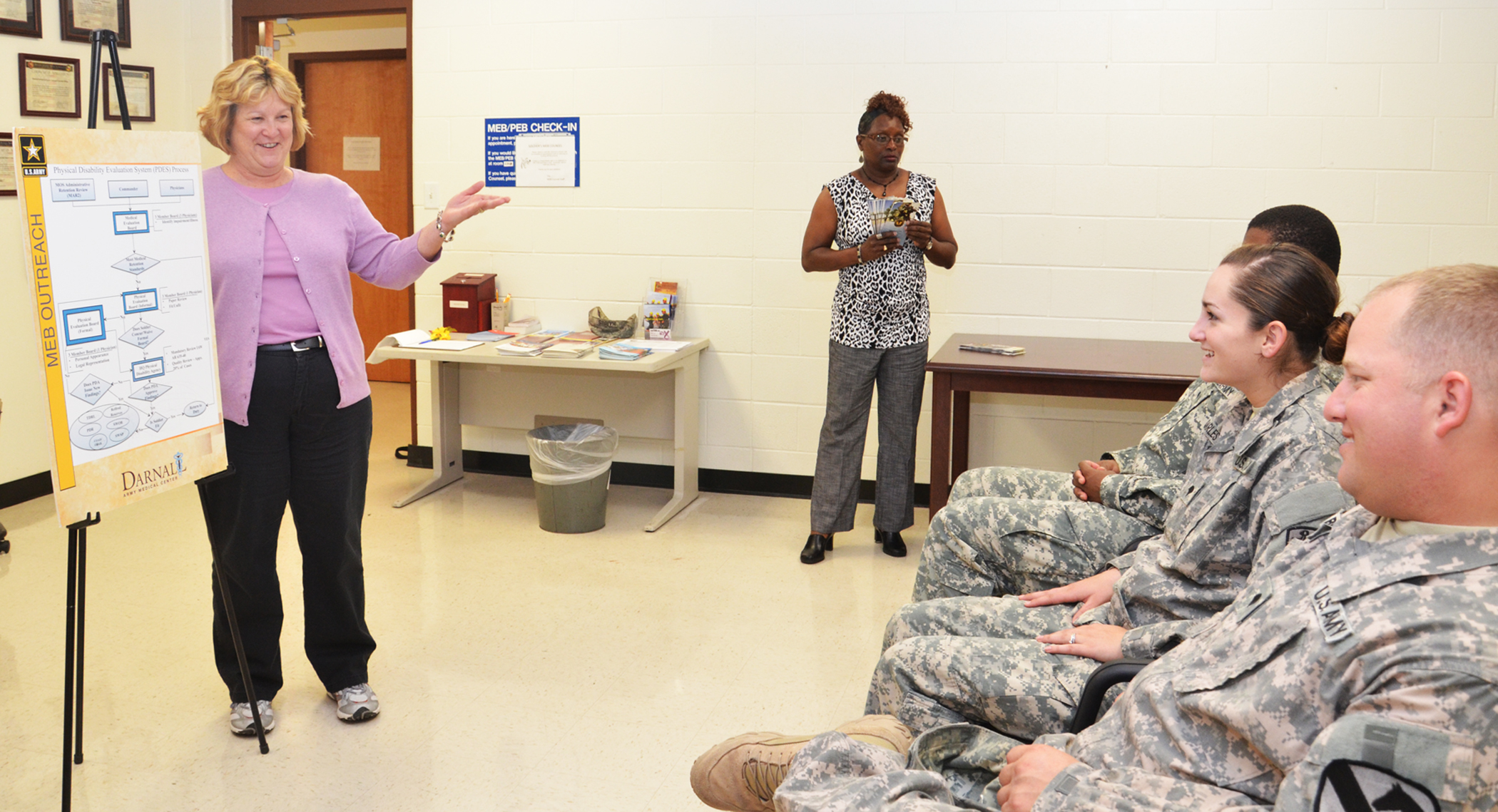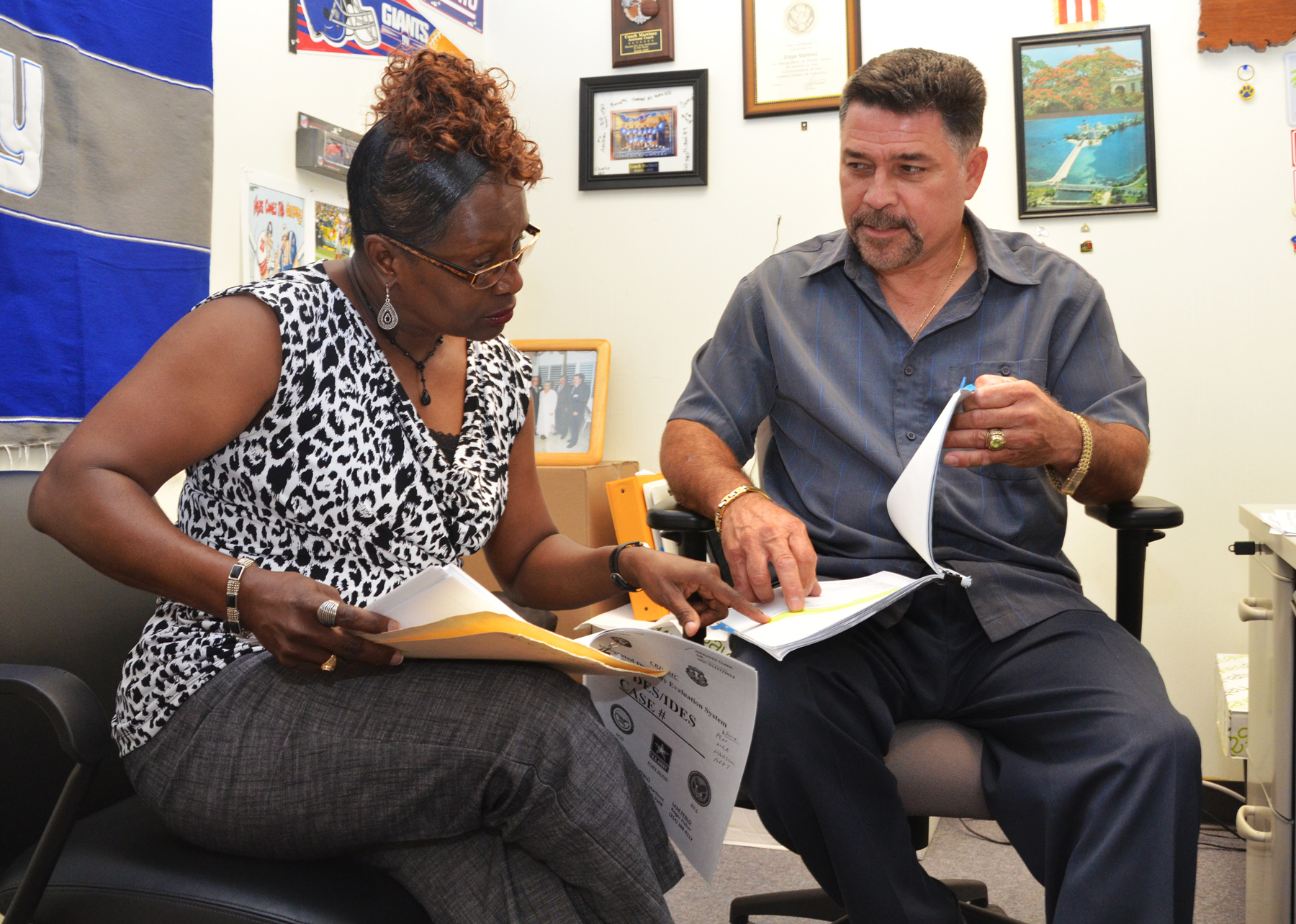Legal Counsel helps Soldiers navigate MEB process
By Vickie Kuk, Soldiers’ Medical Evaluation Board Counsel Office
and
Patricia Deal CRDAMC Public Affairs
FORT HOOD, Texas--The Medical Evaluation Board Outreach Counsel name change to Soldiers’ Medical Evaluation Board Counsel Office (SMEBCO) puts the Soldier first, reinforcing its commitment to help wounded, injured and ill Soldiers navigate the Army’s physical disability system.
Fort Hood has the largest number of Soldiers processing through Army Physical Disability Evaluation System (APDES) and most Soldiers don't know how the system works or what their rights are, according to the Carl R. Darnall Army Medical Center’s SMEBCO legal staff.
“Our goal for Soldiers is to ensure they understand their rights. We want Soldiers to leave our office with knowledge and understanding about their case and how to maximize their chances for a correct award early in the process,” said Brian Howey, a SMEBCO attorney.
Howey and other attorneys and paralegals in the office have years of experience interpreting the laws and regulations governing APDES and are committed to helping Soldiers make good decisions about their disability cases.
There’s a lot at stake for Soldiers, and it’s important for them to ensure they know their rights and obligations. They need to be sure they have done everything on their end. According to Rodney Gilchrist, a Soldiers’ MEB paralegal, an important part of the process is for Soldiers to establish the true extent of their injuries, illnesses or disabilities by ensuring their diagnoses are correct, by listing all of their current medical conditions on the MEB Proceedings Report, and by resolving discrepancies in their medical records.
“Determining what benefits Soldiers qualify for can be grueling,” said Linda Webster, a Soldiers’ MEB attorney. “SMEBCO is determined to better educate Soldiers in the APDES process, clarify misconceptions, clear up misunderstandings, and dispel common myths and rumors about the Army disability process.”
One misconception the SMEBCO staff hears frequently is that a Soldier who is injured during deployment to a combat zone will receive tax-free disability pay automatically. But there are specific laws that apply to determine if a Soldier’s injuries were the direct result of a combat-related event or injury, Howey stated, and the SMEBCO staff can assist Soldiers in evaluating whether these laws apply to their cases.
Another common misconception is that Soldiers believe they will receive two disability pay checks, one from the Army and the other one from the VA (Veteran’s Administration), for their claimed service-connection disabilities.
“Only qualifying disabled military retirees who have twenty years of Federal service can get paid both their full military retirement pay and their VA disability compensation. This is known as Concurrent Retirement and Disability Payments,” Howey clarified. “Qualified individuals are those who are retired active or reserve members who are currently entitled to retired pay and who also have a combined VA disability rating of 50 percent or greater.”
As the whole process can be confusing and complicated for Soldiers, the SMEBCO staff urges them to make an appointment to get the most accurate information on what they absolutely need to know in order to make a good decision about their disability case and be better informed. They provide a variety of resources and excellent fact sheets on general topics to help Soldiers spread the word about SMEBCO services, training opportunities and various issues in APDES. The staff works closely with other organizations to help ensure Soldiers and their family members get the best support possible.
“We work with Soldiers to maintain a personal connection with them which is important to keeping them engaged. They know we care and value their participation,” commented Spc. Michael Terrill, a Soldiers’ MEB paralegal.
For more information on SMEBCO services, call (254) 287-9409, 287-4904, 285-6733 or 285-6713. The office is in Building 4617 at the corner of 72nd Street and Santa Fe Drive.
--30--
CUTLINES

Captain Camilo Kafie, an attorney with the CRDAMC Soldiers MEB Counsel Office, discusses next steps with a Soldier going through the Medical Evaluation Board process. The SMEBCO legal staff helps wounded, injured and ill Soldiers as they navigate the Army’s physical disability system. (U.S. Army photo by Patricia Deal, CRDAMC Public Affairs)

Linda Webster, an attorney with the CRDAMC Soldiers MEB Counsel Office, briefs Soldiers on the Medical Evaluation Board process. The SMEBCO legal staff helps wounded, injured and ill Soldiers as they navigate the Army’s physical disability system. (U.S. Army photo by Patricia Deal, CRDAMC Public Affairs)

Vickie Kuk, a paralegal with the CRDAMC Soldiers MEB Counsel Office, discusses a case with Edgar Martinez, a physical evaluation board liaison officer with the Darnall Medical Evaluation Board and Integrated Disability Evaluation System (MEB/IDES) clinic. The two offices work closely to ensure the best possible outcome for Soldiers processing through the Army’s physical disability system. (U.S. Army photo by Patricia Deal, CRDAMC Public Affairs)
Public Affairs Office
(254) 553-1870
Capt. Erin Cooksley
Fort Hood, TX 76544
[email protected]
